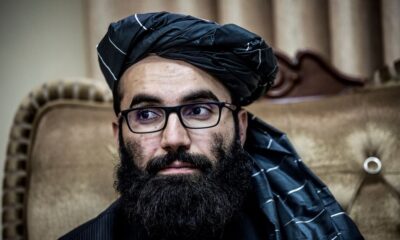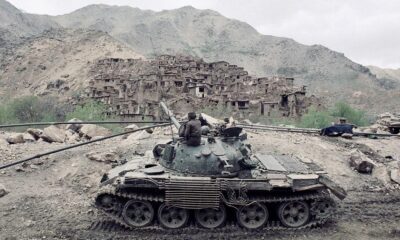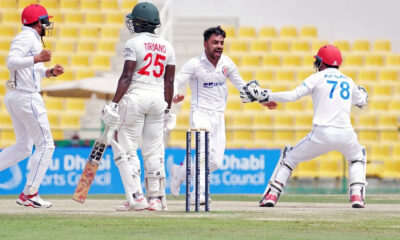Health
EU gives $17 million to improve mental health, drug use disorder services
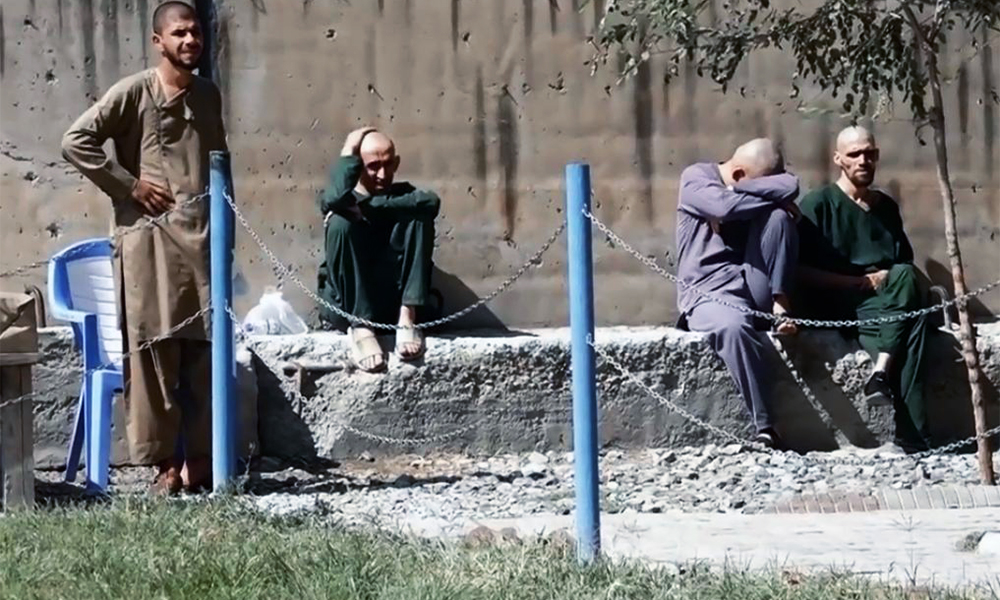
The European Union has allocated €16 million ($17 million) towards increasing access of vulnerable populations in Afghanistan to mental health and drug use disorder services.
To address drug use and its related disorders in Afghanistan, World Health Organization (WHO) will increase Afghans’ access to integrated, qualitative, and comprehensive drug use disorder and mental health and psychosocial support (MHPSS) services, the organization said in a statement.
“Drug use disorders need to be considered primarily as health problems rather than criminal behaviors. The EU funding will enable us to provide an effective and integrated drug treatment programme that focuses on the physical, mental, social, psychological, and economic well-being of vulnerable populations,” says Dr Luo Dapeng, WHO Representative in Afghanistan.
Raffaella Iodice, EU Chargée d’Affaires and Deputy Head of Delegation to Afghanistan said: “The EU remains deeply committed to supporting the Afghan people. Too many persons in Afghanistan suffer from mental health disorders after years of conflict and political changes. Improving the health and well-being of the people of Afghanistan jointly with WHO and the United Nations Office on Drugs and Crime is to address immediate needs of people and represents concrete steps towards achieving universal health coverage”.
The EU’s assistance to Afghanistan addresses notably the most vulnerable segments of the population, including women, girls, minorities, internally displaced persons and refugees. EU aid is channeled through United Nations agencies or nongovernmental organizations, WHO stated.
Health
Trump transition team plans immediate WHO withdrawal, expert says
Critics warn that a U.S. withdrawal could undermine global disease surveillance and emergency response systems, Reuters reported.

Members of Donald Trump's presidential transition team are laying the groundwork for the United States to withdraw from the World Health Organization on the first day of his second term, according to a health law expert familiar with the discussions.
"I have it on good authority that he plans to withdraw, probably on Day One or very early in his administration," said Lawrence Gostin, professor of global health at Georgetown University in Washington and director of the WHO Collaborating Center on National and Global Health Law, Reuters reported.
The Financial Times was first to report on the plans, citing two experts. The second expert, former White House COVID-19 response coordinator Ashish Jha, was not immediately available for comment.
The Trump transition team did not immediately respond to a Reuters request for comment.
The plan, which aligns with Trump's longstanding criticism of the U.N. health agency, would mark a dramatic shift in U.S. global health policy and further isolate Washington from international efforts to battle pandemics.
Trump has nominated several critics of the organization to top public health positions, including Robert F. Kennedy Jr., a vaccine skeptic who is up for the post of secretary of Health and Human Services, which oversees all major U.S. health agencies including the CDC and FDA, read the report.
Trump initiated the year-long withdrawal process from the WHO in 2020 but six months later his successor, President Joe Biden, reversed the decision.
Trump has argued that the agency failed to hold China accountable for the early spread of COVID-19. He has repeatedly called the WHO a puppet of Beijing and vowed to redirect U.S. contributions to domestic health initiatives.
A WHO spokesperson declined to directly comment but referred Reuters to comments by WHO Director-General Tedros Adhanom Ghebreyesus at a press briefing on Dec. 10 in which he was asked whether he was concerned that the Trump administration would withdraw from the organization.
Tedros said at the time that the WHO needed to give the U.S. time and space for the transition. He also voiced confidence that states could finalize a pandemic agreement by May 2025.
Critics warn that a U.S. withdrawal could undermine global disease surveillance and emergency response systems, Reuters reported.
"The U.S. would lose influence and clout in global health and China would fill the vacuum. I can't imagine a world without a robust WHO. But U.S. withdrawal would severely weaken the agency," Gostin said.
Health
South Korean team develops ‘Iron Man’ robot that helps paraplegics walk
Kim Seung-hwan, who is himself a paraplegic and part of the KAIST team, demonstrated the prototype which helped him walk at a speed of 3.2 kph (2 mph), climb a flight of stairs and take sideways steps to slide into a bench.
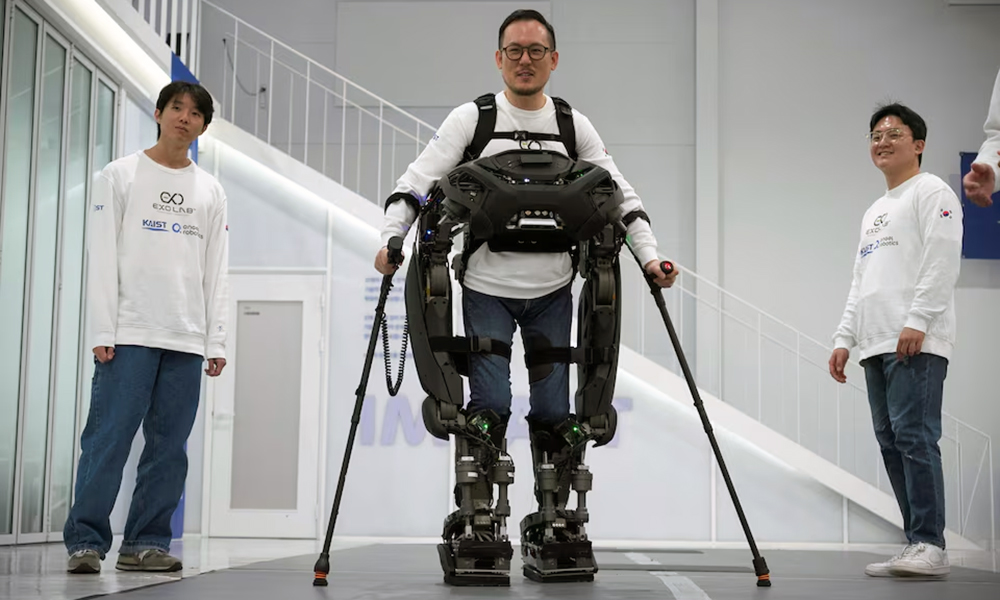
South Korean researchers have developed a lightweight wearable robot that can walk up to paraplegic users and lock itself onto them, enabling them to walk, manoeuvre obstacles and climb staircases, Reuters reported.
The Exoskeleton Laboratory team at the Korea Advanced Institute of Science and Technology (KAIST) said their goal is to create a robot that seamlessly integrates into the daily lives of individuals with disabilities.
Kim Seung-hwan, who is himself a paraplegic and part of the KAIST team, demonstrated the prototype which helped him walk at a speed of 3.2 kph (2 mph), climb a flight of stairs and take sideways steps to slide into a bench.
"It can approach me wherever I am, even when I’m sitting in a wheelchair, and be worn to help me stand up, which is one of its most distinct features," Kim said.
The powered exoskeleton, named WalkON Suit F1, features aluminium and titanium composition to weigh in at 50 kg (110 lb), and is powered by 12 electronic motors that simulate the movements of human joints while walking, read the report.
Park Jeong-su, another member of the KAIST team, said he was inspired by the movie "Iron Man". "After watching Iron Man, I thought it would be great if I can help people with a robot in real life."
To ensure the user's balance while walking, the robot is equipped with sensors on its soles and in the upper body that monitor 1,000 signals per second and anticipate the user's intended movements.
Lenses on the front of the robot work as eyes which analyse its surroundings, identify the height of stairs and detect obstacles to compensate for the lack of sensory ability of users with complete paraplegia, Park said.
Kim Seung-hwan won the gold medal while wearing the WalkON Suit F1 in the exoskeleton category at Cybathlon 2024, which saw developers with varying physical disabilities demonstrate assistive robots in eight categories, Reuters reported.
"I wanted to tell my son .... that I also used to able to walk. I wanted to share a diverse range of experiences with him," said Kim.
Health
Herat Regional Hospital struggling to deal with heavy patient load
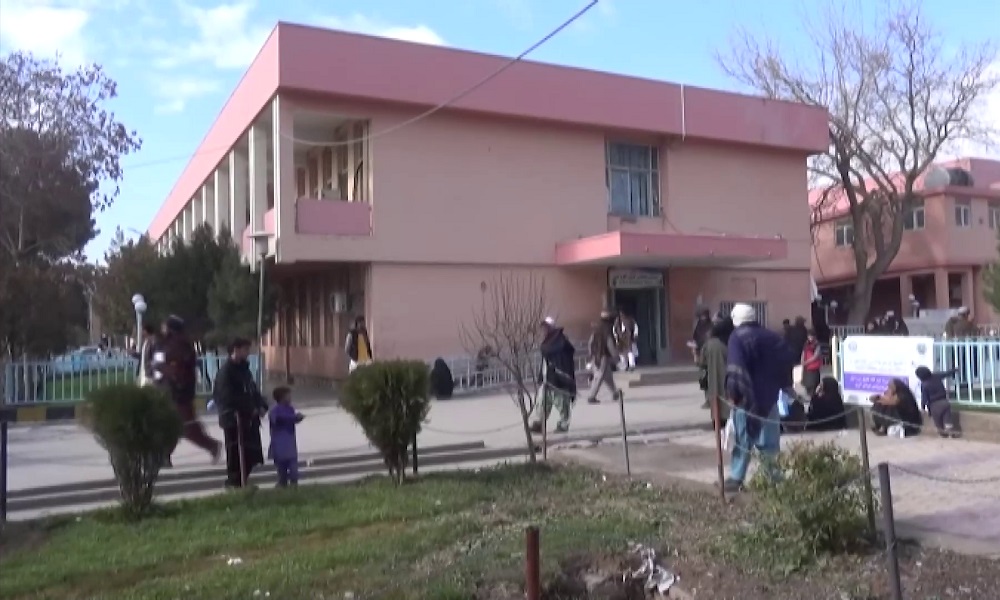
Herat Regional Hospital has a capacity to treat about 1,000 patients a day, 650 as in-patients. However, the hospital is being stretched to its limits and is treating more than double this number of people every day, hospital officials say.
Officials say that in most wards, there are two patients per bed. They say the hospital needs to expand - that they urgently need more space and more equipment.
According to doctors, the High Care Unit has only 10 beds, when it actually needs at least 65. In addition, they say the dialysis department is only running at half-mast. It has 17 dialysis machines, but only eight are in working order.
Herat residents have also raised concern over the state of the hospital and said some departments, especially the dialysis unit and pediatrics urgently need equipment and additional space.
Afghanistan is grappling with significant health challenges marked by a fragile healthcare system and unequal access to services, particularly in rural areas.
This is due to a number of issues such as transportation difficulties, shortage of healthcare professionals, and limited access to quality healthcare services.
Despite efforts to improve the country’s healthcare infrastructure, Afghanistan continues to grapple with systemic issues that hinder effective healthcare delivery. Analysis by UN agencies of under-served areas shows that 13.2 million people in 34 provinces reside in areas where primary healthcare services are not accessible within a one-hour walking distance.
-

 Business4 days ago
Business4 days agoShoemaking industry in Takhar province facing stagnation
-

 Latest News5 days ago
Latest News5 days agoA new polio vaccination campaign is set to launch in Afghanistan
-

 Latest News5 days ago
Latest News5 days agoEight Afghan migrants die as boat capsizes off Greek island
-
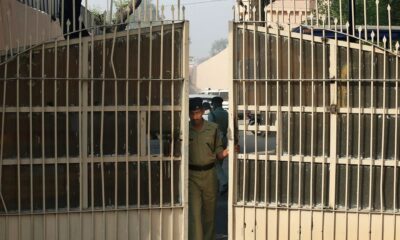
 Latest News3 days ago
Latest News3 days agoOver 50 Afghan inmates freed from Pakistani prisons
-

 World5 days ago
World5 days agoMore than 30 dead in Brazil bus and truck collision
-

 Science & Technology4 days ago
Science & Technology4 days agoAlbania bans TikTok for a year after killing of teenager
-
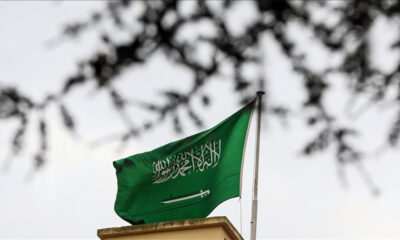
 Latest News4 days ago
Latest News4 days agoSaudi Arabia reopens embassy in Afghanistan
-

 Latest News3 days ago
Latest News3 days agoTrump criticizes abandoning of equipment in Afghanistan, vows to rebuild military




